- Home
- Alice Hoffman
The Red Garden
The Red Garden Read online
ALSO BY ALICE HOFFMAN
The Story Sisters Second Nature
The Third Angel Turtle Moon
Skylight Confessions Seventh Heaven
The Ice Queen At Risk
Blackbird House Illumination Night
The Probable Future Fortune’s Daughter
Blue Diary White Horses
The River King Angel Landing
Local Girls The Drowning Season
Here on Earth Property Of
Practical Magic
[For Young Adults]
Green Witch Green Angel
Incantation Indigo
The Foretelling Aquamarine
This is a work of fiction. Names, characters, places, and incidents either are the product of the author’s imagination or are used fictitiously. Any resemblance to actual persons, living or dead, events, or locales is entirely coincidental.
Copyright © 2011 by Alice Hoffman
All rights reserved.
Published in the United States by Crown Publishers, an imprint of the Crown Publishing Group, a division of Random House, Inc., New York.
www.crownpublishing.com
Some sections of The Red Garden have previously been published in Kenyon Review, Five Points, Boulevard, Southwest Review, Harvard Review, Prairie Schooner, and The Yale Review.
CROWN and the Crown colophon are registered trademarks of Random House, Inc.
Library of Congress Cataloging-in-Publication Data
Hoffman, Alice.
The Red Garden / Alice Hoffman
p. cm
1. City and town life—Massachusetts—Fiction. 2. Massachusetts—Fiction. I. Title.
PS3558O3447R43 2010
813′.54—dc22 2010006246
eISBN: 978-0-307-72083-2
Jacket design by Laura Duffy
Jacket photography © Fabio Panichi/Trigger Images
v3.1
In memory of Albert J. Guerard,
the great critic, writer, and teacher,
who in his fifty years at Harvard and Stanford universities
changed the voice of American fiction and
also changed my life
Contents
Cover
Other Books by This Author
Title Page
Copyright
Dedication
THE BEAR’S HOUSE
EIGHT NIGHTS OF LOVE
THE YEAR THERE WAS NO SUMMER
OWL AND MOUSE
THE RIVER AT HOME
THE TRUTH ABOUT MY MOTHER
THE PRINCIPLES OF DEVOTION
THE FISHERMAN’S WIFE
KISS AND TELL
THE MONSTER OF BLACKWELL
SIN
BLACK RABBIT
THE RED GARDEN
KING OF THE BEES
Acknowledgments
About the Author
THE BEAR’S HOUSE
THE TOWN OF BLACKWELL, MASSACHUSETTS, changed its name in 1786. It had been called Bearsville when it was founded in 1750, but it quickly became apparent that a name such as that did little to encourage new settlers. True, there were nearly as many black bears in the woods then as there were pine trees, but there were also more eel in the river than there were ferns sprouting on the banks. You could stick your hand into the murky green shallows and catch half a dozen of the creatures without using bait. If you ventured in waist-high you’d be surrounded in moments. Yet no one considered calling the village Eelsville, even though people ate eel pie on a regular basis and many of the men in town wore eelskin belts and boots. They said wearing eel made them lucky at cards, but when it came to the rest of life, love for instance, or business acumen, they had no luck at all.
The town’s original name was always discussed and remembered in August, a dry yellow month when the grass was tall and bears ate their fill of blueberries on Hightop Mountain, a craggy Berkshire County landmark that separated Blackwell from the rest of the world. August was the time when the festival to commemorate Hallie Brady was held, but those who thought she’d been born in that month were mistaken. In fact, she had been born in Birmingham, England, on the sixteenth of March into unhappy circumstances. An orphan, long on her own, she’d been forced to find employment at a hatmaker’s at the age of eleven. It was an unsavory situation that included more than merely fashioning hatbands out of black ribbon. The factory owner lurked close by, running his hands over Hallie’s pale, freckled skin as though he owned her. She bided her time. She was the sort of person ready to face the wilderness, a young woman certain she had nothing more to lose. When compared to her childhood, all the hardships of the Berkshires added up to heaven, despite the deep, nearly endless winters.
Even in the heat of summer, when there were mosquitoes skimming over the surface of the river and bees bumped against windowpanes, people looked out at Hightop and shivered. Not everyone was as brave as Hallie Brady, and the local people who followed the founders knew how killing the darkest months in these parts could be. They wondered how the first settlers had managed to survive that initial winter, when there were bears in every tree and the snowdrifts were said to be as tall as a man. Before Hallie and the settlers arrived, the far side of Hightop was unpopulated. The native people who camped nearby vowed that no man would ever find happiness west of the mountain. Hunters never crossed into that territory even though the woods were filled with wolves and fox. There were red-tailed hawks, deer, squirrels, and more bears than anyone could count. Still they stayed away. They believed some places were forbidden, and that men were no more the kings of all things than the bees that swarmed over the mountain in midsummer.
William Brady headed the first expedition. He decided that he needed a wife before he set into the wild, western parts of Massachusetts, a ready partner to help carry the weight of the journey. He met Hallie in Boston a month after her arrival, and before another month had passed they said I do and started out west. Hallie had been fending for herself ever since leaving England. William was the first man to ask her for her hand, and she quickly agreed. She didn’t believe in romance, but she did have faith in her own future. He was forty, she was seventeen. He had already failed at everything he had tried; she hadn’t yet begun to live. Hallie had the impression that the marriage was a mistake on their wedding night, spent at a raucous inn near Boston harbor. William had done his husbandly business, then had dropped into a deep, twitchy sleep. He hadn’t uttered a single word during their lovemaking. Soon Hallie would realize she should have been grateful for that, but on that night she seemed absurdly alone, considering she was a newly married woman.
William had a single virtue. He was an excellent salesman. He had sold Hallie on the notion of their marriage, and soon afterward he managed to convince three other families to travel with them out west. There was safety in numbers, especially when heading across the mountains. The Motts and the Starrs signed on, along with the Partridges, who had a young son named Harry. Hallie quickly began to suspect she had married a confidence man. In fact, William Brady was running from debtor’s prison and a long list of failed projects that included bilking people of their earnings. He convinced the three other families to pay for everything they’d need to set out: the horses, the mules, the dried meat, the flour, the cornmeal. In exchange, William would lead the way. He said he had experience, but in fact he had never been farther west than Concord. He led them in circles for the full month of October, a foolish time to start out across uncharted land, fumbling through the wilderness until an early blinding snowstorm stopped their progress. They had just scrambled over Hightop Mountain when the bad weather overtook them. Where they hunkered down, in the valley below, marked the beginning of Bearsville.
The first person who spotted a bear was six-year-old Harry Pa
rtridge. Winter had still not fully arrived, yet there was already snow on the ground. They had been living like gypsies as the men tried their best to build a real shelter. Harry shouted for them to leave their work on the rickety log house and had them run down to the meadow to see. The men laughed when they spied a leafy squirrel’s nest up in the tree, which might have easily looked like a vicious beast to a boy from Boston.
From then on, that spot was known as Harry’s Bear.
Go right past Harry’s Bear and you’ll find the stack of wood, they would say to each other after that. Make a left at Harry’s Bear and head for the creek.
Such unconscionable teasing always made Harry’s face flush. But he was not the only one who feared bears. The women—Rachel Mott, Elizabeth Starr, and Susanna Partridge, Harry’s mother—were nervous when darkness fell. Food had been stolen from the wooden storehouse. They’d heard things rustling in the woods when they went to collect chokeberries, the last of the season’s, barely enough to keep them alive. They saw footprints that were monstrously large in the muck near the river. No wonder they had trouble sleeping at night, even after they moved into the poorly built shelter where they could never stay warm. An ashy fire was kept burning day and night, airing through a hole in the roof. Smoke turned their faces and feet black, and several times they almost froze to death. They woke in the mornings with crusts of ice in their hair and on their clothes. They might have starved as well, despairing over everything that had happened in their lives since they’d had the misfortune to meet William Brady, if Hallie hadn’t made her way down to the river one day, driven by hunger and fury. She could not believe how helpless her stranded group was. None of the men were skilled hunters. They knew little about survival. She felt they had all been bewitched by the mountain, ready to lie down on their straw pallets, close their eyes, and give up the one life on earth they’d been granted.
Hallie went out on her own. She tramped over the frozen marshes, ignoring the patches of briars. When she got to the riverside, she took a rock and smashed through the skim of ice over the water. Then with her bare hands she reached into the blackness and collected a potful of eels for a stew. They wriggled and fought, the way eels do, but because of the cold they were in a half sleep and Hallie easily won the fight. She had come all the way from England and she didn’t intend to die her first winter out, not on the western side of this high dark mountain. After that, she built traps out of twigs and rope and, with Harry beside her, began to catch rabbits in the meadow. It was November by then, and above the mountain the sky turned a luminous blue late in the day, like ink spilling out on a page. Hallie and Harry could see their breath puffing into the air as they traipsed through the woods. They could hear the rabbits scrambling underneath the traps when they were caught. It was true; rabbits cried. They sounded like children, shivering and lost.
Harry felt sorry for the rabbits and wanted to keep them as pets, but Hallie patiently explained that a pet was of no use to a dead person. Without food, they would all be lost. She made her point when she firmly broke the rabbits’ necks. She next concocted a net out of a satin skirt she’d bought in Birmingham, an article of clothing she had done terrible things in order to afford. That was the way she had earned her fare to Boston as well. That man who had lingered beside her had been willing to pay just to touch her. When he had, she would think about the world she was about to find, a wilderness where tall trees sheltered you, where heaven was so close by you could see its vast reaches.
William Brady laughed at her when she set off. He said women weren’t hunters and that she’d freeze her fingers off in the cold, but she went out into the snow, the poorly made door wobbling on its nailed hinges as it slammed shut behind her. She was patient enough to catch trout in the creek that she had decided to call Dead Husband’s Creek. It was just a wishful thought on Hallie’s part, and it always made her and Harry laugh as they fished together. How many dead husbands could you fit in the river? Oh, one would be just enough. When the trout were fried in a black cast-iron pan they were delicious, even though there was no salt or rosemary to use for flavoring.
At night Hallie slept next to Harry. She suggested that the child might need the heat of her body to warm him or he would freeze to death. That was most likely true—Harry was a somewhat delicate child—but this excuse was a way to avoid her husband, and it did the trick. William Brady was so exhausted from the never-ending work in their settlement he didn’t bother to argue and claim his wife for himself.
IN THE DEAD of winter, the drifts were eight feet high. There was very little wood to keep the fire burning. The women on the expedition stopped talking. They had nothing to say. They were starving to death. Elizabeth Starr’s hair turned white, even though she was still a young woman. Susanna Partridge, Harry’s mother, had a ghostly look in her eye. The men could no longer remember how on earth William Brady had talked them into leaving Boston in the first place. He’d said something about owning all the land they wanted, everything for as far as the eye could see, but that didn’t seem so appealing anymore. What they saw was the country of their own demise. Two of the horses and one of the mules had died, then had been eaten, by wolves, it appeared. The last two horses, one black and one roan, were kept inside with the families, in a dark, fenced-off section of the shelter. Once, Hallie thought she heard them crying, even though she knew that was impossible; horses weren’t like foolish rabbits. But in the morning the roan was dead.
Hallie took that as a message from their savior: Those who didn’t move forward were condemned to their miserable fates. That morning Hallie put on all of the clothes she owned. She slipped on William’s high boots. She wore mittens and a shawl that the hatmaker’s wife had given her when she’d left England. That man who had thought Hallie belonged to him had been wrong, and his wife must have prayed that the same had been true for herself. She’d whispered that she wished she was going to Boston as well.
“Those are my boots,” William Brady said when he saw his wife ready to go into the woods.
Hallie already knew her husband was not a generous man. “What’s the difference?” she countered. “You’re not going anywhere, are you?”
William Brady was in a fog of regret due to his bad choices. He’d rather be sitting in debtor’s prison than be trapped beneath the western slope of Hightop Mountain. He wasn’t about to pull on his boots and go in search of his own cold death.
“No.” Hallie nodded when he backed off. “I thought not. You’ll just sit here and die.”
She took a rifle from the shelf. When the other women told her she was mad to go—surely she’d freeze before she reached the meadow—she said she didn’t care. She would rather die trying to live than simply give up like the rest of them. It was still snowing and the wind made a creaking sound. Yes, it was cold, but as soon as she left the shelter Hallie felt better. Being alone was a huge relief. She couldn’t stand the people who’d come here to the Berkshires. They were fearful and small, ready to leap into their own graves. It was a while before Hallie realized that Harry had sneaked out, following in her wake, leaping from the pressed-down snow of one of her boot steps to the next.
“Go back,” Hallie told him.
Harry shook his head. He kept thinking of those rabbits they’d found, broken and boiled in the big cast-iron pot, and how, when he closed his eyes and pretended they weren’t rabbits, they had tasted delicious.
“Fine,” Hallie allowed. “But you’d better keep up.”
They went through the meadow and into the woods. It was easier to walk in the wilderness. Much of the snow had caught in the boughs of the pine trees. They took a path through the brambles, where the drifts weren’t as high. The world was white and peaceful and quiet. A squirrel ran up a tree. Hallie aimed and fired, but she missed it. A bundle of snow dropped from the tree she had hit.
By dusk they were lost. It was the hour when the ink began to spread across the sky, only the dark was dotted with white flecks as snow speckled down. Hal
lie wrapped her shawl around Harry’s head so that he looked like a little old woman rather than a frightened six-year-old. Hallie gazed at the falling snow and the endless woods. She was not yet eighteen. She thought that when she made it back she would name this area Dead Husband’s Woods. She didn’t think she would laugh at a name like that. She would think herself lucky to get out alive.
A star shone and flickered. Impossible since it wasn’t yet fully dark. Hallie picked up the boy and carried him toward the flickering. She thought about the way the Israelites were led out of the desert. She decided she would simply put one foot in front of the other in her husband’s heavy too-big boots. Because of this she was led to Hightop Mountain where the jagged cliffs were riddled with shimmery mica. Each bit of mica was like a shining star. Salvation was mysterious, wasn’t that always true? There was a cave at the base of the mountain. Hallie thought about manna, how you had to be ready to receive what you were given. She went in without any fears of possible dangers. She had made her choice. Despite everything she did not wish to be back in the hat shop in Birmingham, plucking feathers from the corpses of peacocks and doves, fending off the attentions of the owner.
Harry was exhausted and freezing. He’d fallen asleep on her shoulder. That was lucky for him. He didn’t see the bear in the cave. Hallie stopped. Her breathing was quick. Her choice was to go back out into the snow and die with Harry, or lie down beside the slumbering bear to warm their nearly frozen bodies. She chose the latter. The big bear seemed dead even though it snuffled. It didn’t move and its eyes were closed. Alongside were two cubs, one dead, the other alive and nursing.
Hallie rested Harry Partridge up against the big bear and urged him to drink its milk. In a half sleep he did as he was told, still caught up in his dreams. The little bear who nursed alongside him mewled and pushed at the interloper, then concentrated on feeding. Later, Hallie, too, drank from the bear. She had never tasted anything so rich and delicious as its milk. She felt warmed to her soul. While Harry and the bears slept she stood at the mouth of the cave looking out. The snow was falling lightly and the world seemed a fairyland. Hallie felt enchanted. She felt as though anything could happen.

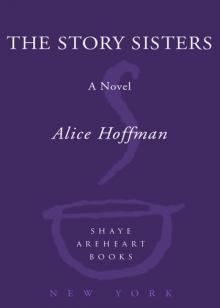 The Story Sisters
The Story Sisters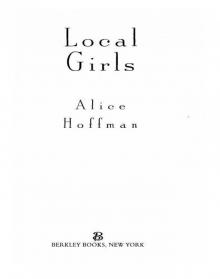 Local Girls
Local Girls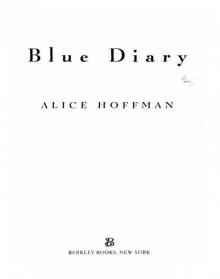 Blue Diary
Blue Diary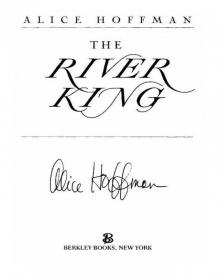 The River King
The River King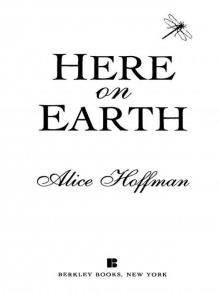 Here on Earth
Here on Earth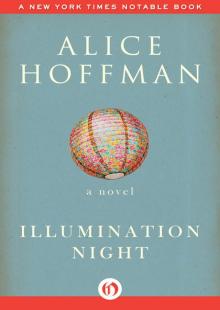 Illumination Night: A Novel
Illumination Night: A Novel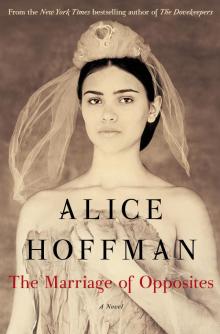 The Marriage of Opposites
The Marriage of Opposites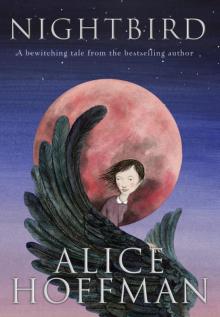 Nightbird
Nightbird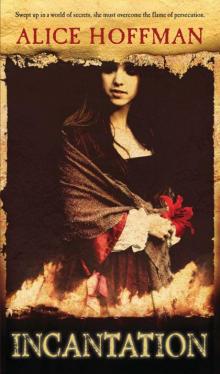 Incantation
Incantation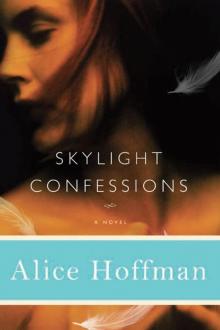 Skylight Confessions
Skylight Confessions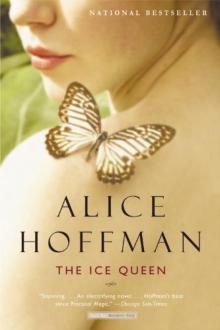 The Ice Queen
The Ice Queen Second Nature
Second Nature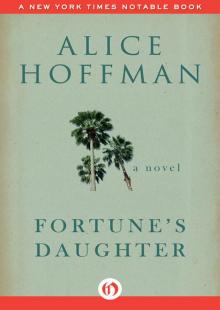 Fortune's Daughter: A Novel
Fortune's Daughter: A Novel Seventh Heaven
Seventh Heaven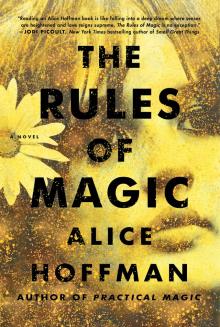 The Rules of Magic
The Rules of Magic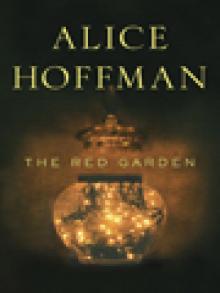 The Red Garden
The Red Garden The Third Angel
The Third Angel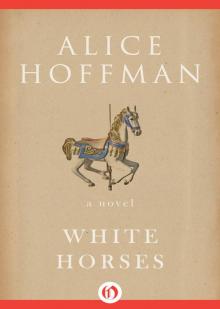 White Horses
White Horses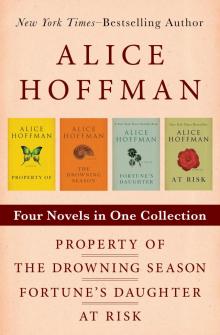 Property of / the Drowning Season / Fortune's Daughter / at Risk
Property of / the Drowning Season / Fortune's Daughter / at Risk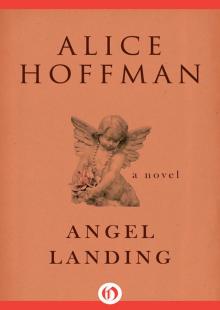 Angel Landing
Angel Landing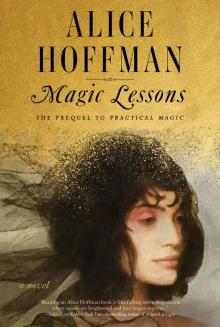 Magic Lessons
Magic Lessons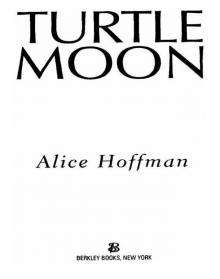 Turtle Moon
Turtle Moon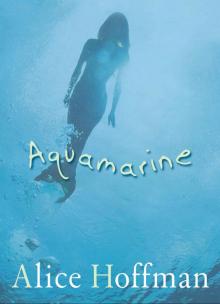 Aquamarine
Aquamarine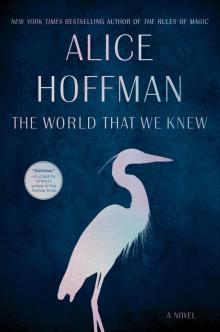 The World That We Knew
The World That We Knew Faithful
Faithful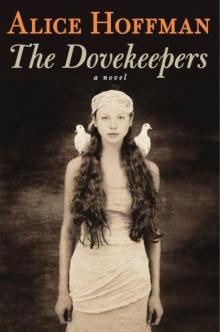 The Dovekeepers
The Dovekeepers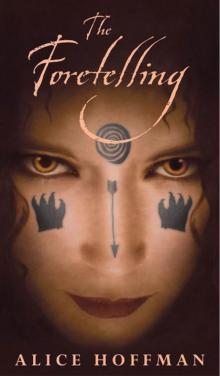 The Foretelling
The Foretelling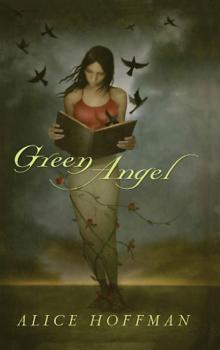 Green Angel
Green Angel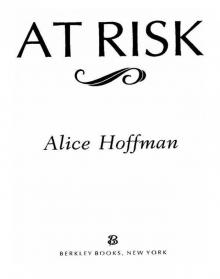 At Risk
At Risk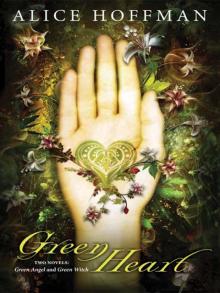 Green Heart
Green Heart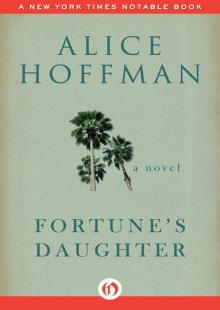 Fortune's Daughter
Fortune's Daughter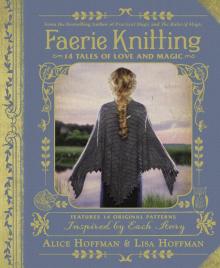 Faerie Knitting
Faerie Knitting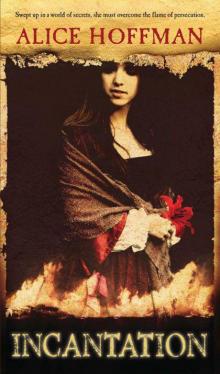 Incantation (v5)
Incantation (v5)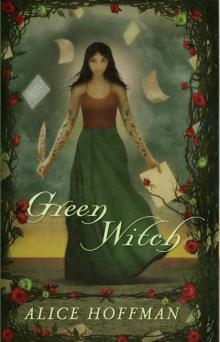 Green Witch
Green Witch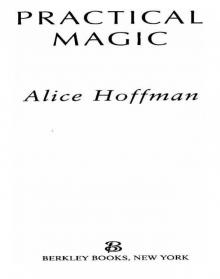 Practical Magic
Practical Magic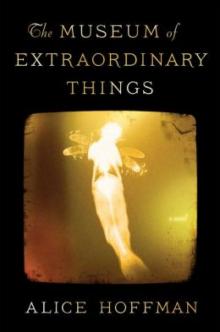 The Museum of Extraordinary Things
The Museum of Extraordinary Things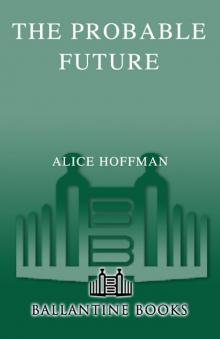 The Probable Future
The Probable Future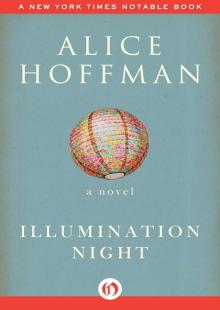 Illumination Night
Illumination Night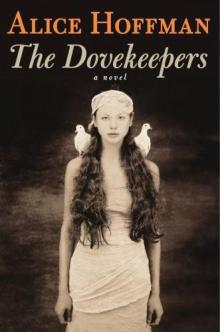 The Dovekeepers: A Novel
The Dovekeepers: A Novel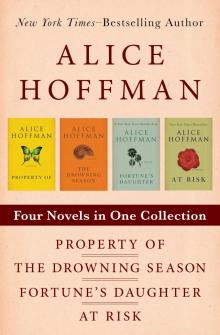 Property Of, the Drowning Season, Fortune's Daughter, and At Risk
Property Of, the Drowning Season, Fortune's Daughter, and At Risk